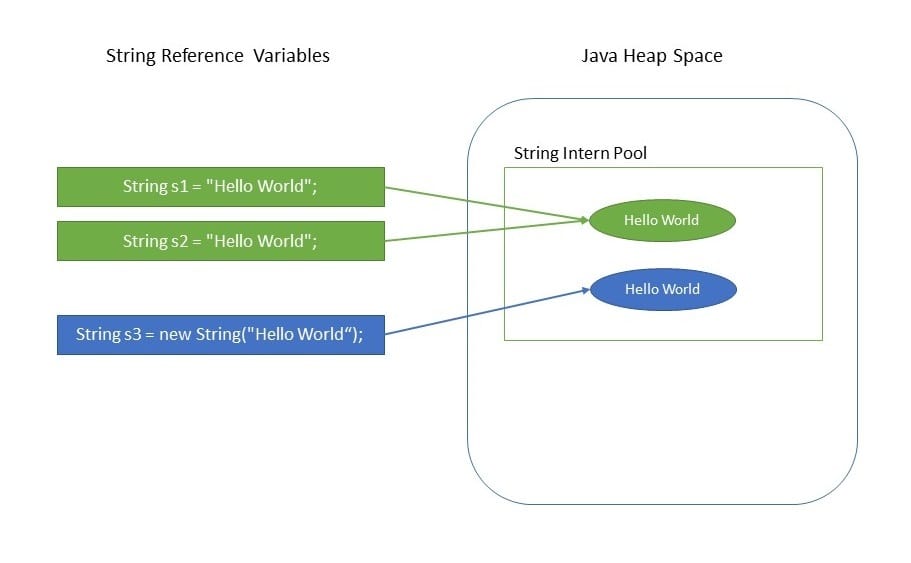Unalterable Strings: A Trick Element in Ensuring Information Consistency and Reliability
In the realm of information monitoring, the significance of unalterable strings can not be overstated. The idea of unalterable strings transcends mere technicality; it is a cornerstone in the complicated web of information governance.
The Principle of Unalterable Strings
Immutable strings, a fundamental concept in shows, refer to strings that can not be customized once they are produced. Fundamentally, when a string value is designated, any type of procedure that appears to modify the string actually produces a brand-new string. This immutability ensures data uniformity and integrity in applications, as it stops unforeseen changes to the initial data.
Advantages in Information Consistency

Data uniformity is essential in different facets of software advancement, including data source administration, multi-threaded settings, and distributed systems (Why are strings immutable in Java?). Immutable strings add dramatically to accomplishing this consistency by protecting against information corruption because of simultaneous gain access to. In circumstances where multiple processes or strings engage with the very same information all at once, unalterable strings function as a secure against race problems and synchronization concerns
Additionally, the immutability of strings streamlines debugging and testing procedures. With unalterable strings, programmers can rely on that when a string is established, it will remain the same, making it easier to trace the source of mistakes and making sure that examination instances create regular outcomes. This integrity in data dealing with eventually brings about a lot more durable and steady applications.
Implementing Unalterable Strings
Making certain the immutability of strings requires a thoughtful strategy to their implementation in software program advancement. One crucial strategy is to make string classes in a means that prevents modifications as soon as a string things is created. By making strings immutable, programmers can boost data consistency and dependability in their applications.
To carry out immutable strings efficiently, designers must favor producing new string objects as opposed to customizing existing ones. This practice ensures that when a string is appointed a value, it can not be transformed. Furthermore, any operation that shows up to customize the string needs to develop a new string with the preferred adjustments as opposed to modifying the initial.
In addition, utilizing immutable strings can simplify concurrency monitoring in multi-threaded environments. Considering that unalterable strings can not be altered after development, they can be securely shared amongst numerous threads without the risk of information corruption.
Function in Integrity Guarantee
In software development, the use of immutable strings plays an important function in making sure the dependability of data operations. Immutable strings, once developed, can not be customized, guaranteeing that the data they represent stays consistent throughout the application's implementation. This immutability home offers a degree of guarantee that the data being processed will certainly not be inadvertently altered, causing unforeseen outcomes or mistakes in the system.
By integrating immutable strings right into software application layout, programmers can boost the integrity of their applications by reducing the threats related to mutable data - Why are strings immutable in Java?. Unalterable strings help in stopping information corruption or unintended modifications, which can be especially essential when taking care of sensitive details or when data integrity is vital
Moreover, making use of unalterable strings simplifies concurrent processing, as numerous strings can safely accessibility and share string data without the risk of one string changing the web content while one more reads it. This facet adds considerably to the general integrity of the software application system, making certain predictable and regular behavior in information taking care of Resources operations.
Applications and System Assimilation
The seamless integration of unalterable strings right into numerous applications and systems is find out here pivotal for making sure robust information consistency and dependability throughout diverse technical settings - Why are strings immutable in Java?. Immutable strings play an essential function in boosting the stability of information exchanges and communications within complicated software communities. By incorporating unalterable strings into applications, programmers can reduce the threats associated with information meddling, unauthorized alterations, and unintentional modifications, therefore fortifying the total protection posture of the system
Immutable strings can boost interoperability between disparate systems by giving a standardized layout for information representation, making it possible for extra effective data processing and exchange methods across interconnected systems. By adopting unalterable strings in applications and system integration procedures, organizations can strengthen their data facilities and support the reliability and consistency of their info possessions.
Final Thought
To conclude, immutable strings play an essential role in keeping information uniformity and reliability in numerous applications and system combinations. By making certain that strings can not be transformed once produced, the honesty of data is preserved, minimizing the threat of mistakes and incongruities. Executing unalterable strings can significantly enhance the reliability of systems, inevitably leading to even more trustworthy and accurate information processing.
